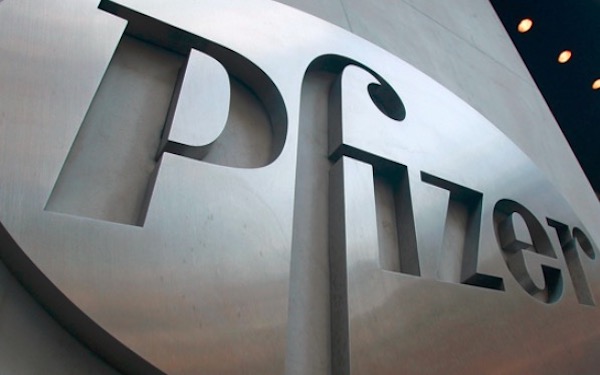
The U.S. Food and Drug Administration (FDA) approved Pfizer’s once-per-day oral medication Vizimpro, a first-line treatment for patients with a rare form of lung cancer, the company announced late Thursday.
Vizimpro (dacomitinib), a kinase inhibitor, was approved to treat patients with metastatic non-small cell lung cancer (NSCLC) with epidermal growth factor receptor (EGFR) exon 19 deletion or exon 21 L858R substitution mutations as detected by an FDA-approved test. The regulatory agency approved Vizimpro under priority review.
Pfizer’s Vizimpro was approved based on strong data from the Phase III ARCHER 1050 trial. In that study, patients were required to have unresectable, metastatic NSCLC with no prior therapy for metastatic disease or recurrent disease with a minimum of 12 months disease-free after completion of systemic therapy. Trial data showed that patients treated with Vizimpro had a median progression-free survival of 14.7 months, compared to 9.2 months for the EGFR inhibitor gefitinib.
NSCLC accounts for about 85 percent of all global lung cancer cases. Of those patients, about 75 percent are diagnosed late with metastatic or advanced disease where the five-year survival rate is only 5 percent, Pfizer said. Some NSCLC patients experience mutations of the EGFR protein. It can help exacerbate the growth of cancer cells. Mutations in EGFR occur in 10 to 35 percent of NSCLC tumors. The most common activating mutations are deletions in exon 19 and exon 21 L858R substitutions, which together account for more than 80 percent of known activating EGFR mutations, Pfizer said. There are low survival rates for these patients.
Because there are still unmet needs in lung cancer, Andy Schmeltz, global president of Pfizer Oncology, said the company is committed to developing new options for those patients.
“With today’s approval, Pfizer has medicines that target three unique lung cancer biomarkers, marking real progress for patients which has been achieved through a diverse and persistent drug development approach,” Schmeltz said in a statement late Thursday.
Mace Rothenberg, chief oncology development officer for Pfizer Global Product Development, said the approval of Vizimpro is a “direct result” of the company’s commitment to developing precision drugs to improve the outcomes of mutation-driven lung cancers.
“Pfizer now has two medicines that can tackle three different forms of mutation-driven lung cancer: Xalkori for patients with ALK-positive or ROS1-positive non-small cell lung cancer and Vizimpro for patients with EGFR-mutated non-small cell lung cancer,” Rothenberg said.
Xalkori is the only FDA-approved treatment indicated for both ALK-positive and ROS1-positive metastatic NSCLC. In May, the FDA granted Xalkori Breakthrough Therapy Designation for two new indications, for the treatment of patients with metastatic non-small cell lung cancer (NSCLC) with MET exon 14 alterations with disease progression on or after platinum-based chemotherapy.
Tony Mok, the primary investigator of the ARCHER 1050 study, pointed to the prevalence of EGFR-mutated advanced non-small cell lung cancer in China. Although the company did not provide information regarding potential approval in China, Mok’s statement suggests that would be a significant move for Pfizer. Lung cancer is a significant issue in China. There are approximately 700,000 new cases of cancer diagnosed in China annually. China has about one-third of new cancer patients in the world, and as BioSpace has noted in past articles, provides a significant market for western drug companies.
Source: Biospace